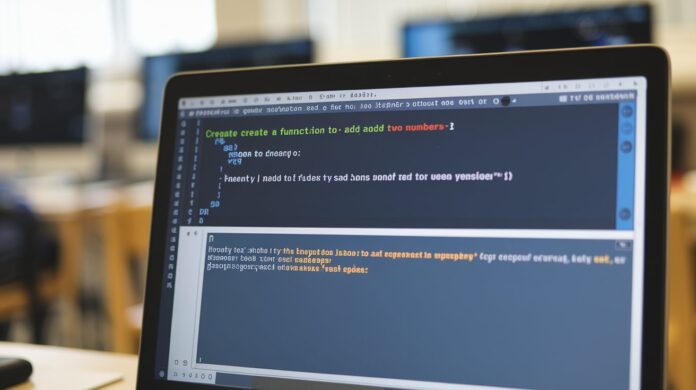In today’s digital world, coding has become an essential skill that opens doors to countless opportunities. However, the traditional path to learning programming—through textbooks, documentation, and formal courses—can often feel overwhelming and monotonous. Enter coding games: an innovative, engaging, and surprisingly effective approach to mastering programming fundamentals while actually having fun in the process.
Whether you’re a complete beginner curious about coding, a student looking to supplement your education, or a professional seeking to sharpen your skills, coding games offer a uniquely accessible entry point into the world of programming. In this comprehensive guide, we’ll explore how these interactive learning tools work, highlight the best options available today, and provide strategies to maximize your learning as you play your way to programming proficiency.
Why Coding Games Work: The Science of Learning Through Play
Before diving into specific games and platforms, it’s worth understanding why the gamification of coding education is so effective. Traditional education often separates the learning process from its application, creating a gap between theory and practice. Coding games bridge this gap in several powerful ways:
Immediate Feedback Loops
When learning to code traditionally, the cycle between writing code and seeing results can be lengthy. Coding games provide instant feedback—your character moves, your puzzle gets solved, or your creation works—reinforcing correct concepts immediately and allowing you to quickly identify and fix mistakes.
Research in cognitive science shows that this immediate feedback accelerates the learning process by strengthening neural pathways associated with correct solutions. A study published in the Journal of Educational Psychology found that students who received immediate feedback while learning computer science concepts scored 22% higher on assessments than those who received delayed feedback.
Intrinsic Motivation
Traditional learning often relies on extrinsic motivation—studying for grades or certifications. Coding games tap into intrinsic motivation—the natural human desire to solve puzzles, overcome challenges, and experience mastery. This shift makes the learning process self-sustaining and enjoyable.
As game designer Jane McGonigal notes in her research, “When we’re playing games, we’re not suffering… We’re constantly engaging with puzzles we believe we can solve, operating at the very edge of our abilities.” This state of “productive struggle” is ideal for learning complex skills like programming.
Contextual Learning
Rather than presenting coding concepts in isolation, games embed these concepts in meaningful contexts. Instead of memorizing syntax or algorithms in the abstract, you’ll use them to help characters navigate mazes, build virtual worlds, or solve in-game problems—creating stronger, more accessible memories of these concepts.
Types of Coding Games: Finding Your Perfect Match

The world of coding games has expanded dramatically in recent years, with options available for every age group, skill level, and learning style. Here’s a breakdown of the main categories you’ll encounter:
Visual Block-Based Games
Best for: Complete beginners, younger learners (8+), visual learners Programming concepts taught: Logic, sequences, loops, conditionals
These games use visual blocks that snap together like puzzle pieces to create programs, eliminating the need to memorize syntax while still teaching fundamental programming concepts. Examples include:
- Scratch: Developed by MIT, Scratch allows users to create interactive stories, games, and animations by connecting visual blocks. Its expansive community shares millions of projects you can learn from and modify.
- Code.org’s Hour of Code: Featuring popular characters from Minecraft, Star Wars, and Frozen, these short game experiences introduce basic coding concepts through accessible puzzles.
- Blockly Games: Google’s series of educational games that teach programming concepts through visual blocks, gradually introducing text-based code as players advance.
Puzzle-Based Coding Games
Best for: Beginners to intermediate learners, problem-solvers, algorithmic thinkers Programming concepts taught: Algorithms, efficiency, logic, debugging
These games present coding challenges that must be solved using programming logic, often with a specific goal or puzzle to complete. Top examples include:
- Lightbot: Players program a robot to navigate obstacles and light up specific tiles, introducing concepts like procedures and loops in an accessible format.
- Human Resource Machine: A puzzle game where players write programs to automate tasks in a corporate office setting, teaching assembly-like programming concepts.
- CodinGame: Offers coding challenges in over 25 programming languages, where players solve increasingly complex puzzles while writing actual code.
Sandbox Coding Environments
Best for: Exploratory learners, creative thinkers, intermediate programmers Programming concepts taught: Open-ended creation, debugging, systems thinking
These games provide open environments where players can experiment freely with coding concepts to create their own experiences:
- Minecraft: Education Edition: Includes a Code Builder feature that lets players use block-based or text-based code to automate actions in the Minecraft world.
- Roblox Studio: Allows users to build games using Lua programming, providing a powerful platform where coding skills translate into shareable creations.
- CodeCombat: An RPG-style game where players write code to control their character, battling through levels while learning Python, JavaScript, or other languages.
Text-Based Coding Games
Best for: Intermediate to advanced learners, serious programming students Programming concepts taught: Syntax, libraries, practical application, efficiency
These platforms use actual programming languages and require players to write code directly:
- Codewars: Offers “kata” (coding challenges) of increasing difficulty in multiple languages, with a martial arts-inspired ranking system.
- Screeps: An MMO strategy game where you control your units by writing JavaScript code, competing against other players in a persistent world.
- Shenzhen I/O: A game about building circuits and writing assembly code, popular among those interested in hardware programming.
Top Coding Games for Different Skill Levels
With so many options available, choosing the right coding game for your skill level is crucial. Here are our top recommendations based on programming experience:
For Absolute Beginners (No Coding Experience)
- CodeMonkey: Teaches real coding concepts through engaging puzzle games where players help a monkey collect bananas using CoffeeScript-like syntax.
- Lightbot: Simple mechanics introduce programming concepts without requiring any typing, making it accessible even for young learners.
- Grasshopper: A mobile app developed by Google that teaches JavaScript basics through fun, quick puzzles perfectly sized for on-the-go learning.
For Early Beginners (Some Exposure to Coding)
- CodeCombat: Progress through dungeons by writing actual Python or JavaScript code, with concepts becoming progressively more complex.
- Codecademy Go: While not strictly a game, this mobile app offers bite-sized coding lessons with gamified elements like streaks and achievements.
- CSS Diner: A specialized game that teaches CSS selectors through a food-themed puzzle interface.
For Intermediate Learners
- CodinGame: Solve challenges and compete in contests using your choice of programming language, with problems ranging from simple algorithms to AI development.
- Untrusted: A JavaScript adventure game where you must modify the game’s own source code to progress through levels.
- TIS-100: A puzzle game simulating assembly programming for a fictional computer, popular among programmers looking to deepen their understanding of low-level concepts.
For Advanced Programmers
- Screeps: Write JavaScript to control your colony in this MMO strategy game where your code runs continuously, even when you’re offline.
- Halite: An AI programming competition where you build bots to compete in a resource management game, sponsored by Two Sigma.
- Robocode: Design robot tanks that battle each other using Java or .NET, requiring sophisticated programming techniques for success.
Maximizing Learning: Strategies for Effective Code Gaming
To ensure your time with coding games translates into actual programming skills, consider these strategies:
Set Clear Learning Goals
Before diving into a coding game, identify specific programming concepts you want to master. Are you focusing on loops and conditionals? Object-oriented programming? Algorithm efficiency? Having clear goals helps you select appropriate games and measure your progress.
Practice Deliberate Reflection
After completing a level or challenge, take a moment to articulate what you’ve learned. What programming patterns did you use? How might these apply to real-world problems? This reflection process solidifies your understanding and helps transfer game-based knowledge to practical coding skills.
Modify and Experiment
Once you’ve solved a puzzle, try solving it again in different ways. Can you make your code more efficient? More readable? This experimentation deepens your understanding of programming concepts and develops the critical thinking skills necessary for real-world coding challenges.
Join Learning Communities
Many coding game platforms have active communities where players share solutions, discuss strategies, and support each other’s learning. Engaging with these communities exposes you to different problem-solving approaches and provides motivation through social connection.
From Games to Real Coding: Building the Bridge
While coding games are excellent learning tools, eventually you’ll want to apply your skills to real-world programming projects. Here’s how to make that transition smoothly:
Start Small Projects
Begin with simple projects that extend concepts you’ve learned in games. If you’ve been playing Minecraft coding games, try building a simple mod. If you’ve mastered puzzle games teaching JavaScript, try building a basic web page with interactive elements.
Use Familiar Tools
Many coding games introduce simplified versions of actual programming tools. Scratch’s block interface has similarities to MIT’s App Inventor for mobile development. The logic you learn in puzzle games translates directly to algorithmic thinking needed for technical interviews. Identifying these connections helps apply game-based knowledge to professional tools.
Follow a Learning Roadmap
Use your gaming experience to identify areas of programming that particularly interest you. Did you enjoy building visual elements? Front-end web development might be your path. Were you intrigued by efficiency puzzles? Algorithm development or back-end programming might be your strength. Let your gaming preferences guide your professional learning journey.
Coding Games in Education: A Tool for Teachers and Parents
Educators and parents can leverage coding games as powerful teaching tools:
Classroom Integration Strategies
- Use coding games as “stations” in a rotation model, allowing hands-on practice alongside traditional instruction
- Implement game-based assignments where students must achieve certain levels or solve specific puzzles
- Create friendly competitions based on game achievements to motivate student engagement
Supporting Learners at Home
- Schedule regular “coding game time” as a positive alternative to passive screen time
- Play alongside children to demonstrate problem-solving strategies and normalize productive struggle
- Connect game concepts to real-world applications through everyday conversations
Measuring Progress Beyond the Game
- Have learners keep journals documenting challenges, solutions, and concepts learned
- Assign projects that apply game-based concepts to original creations
- Use code portfolios to showcase growth over time, including both game achievements and resulting projects
The Future of Coding Education Through Games
The landscape of coding games continues to evolve rapidly, with several exciting trends emerging:
AI-Enhanced Learning Paths
Newer platforms are incorporating artificial intelligence to analyze your problem-solving patterns and customize learning paths accordingly. Games like “CodeGym” already adapt difficulty based on your performance, and this personalization will become increasingly sophisticated.
AR/VR Coding Experiences
Virtual and augmented reality are creating immersive coding education experiences. Imagine physically walking through your code structure in virtual space or seeing your programs execute in the real world through AR. Projects like CoBlocks by Google are already exploring these possibilities.
Crossover with Professional Tools
The line between educational games and professional development environments continues to blur. GitHub’s “GitHub Learning Lab” gamifies actual software development workflows, and we can expect more professional tools to incorporate game-like elements for onboarding and skill development.
Conclusion: Playing Your Way to Programming Proficiency
Coding games represent a revolutionary approach to learning programming—one that transforms the often intimidating world of code into an accessible, engaging journey of discovery. By combining the intrinsic motivation of gameplay with the structured learning of programming concepts, these games create an ideal environment for developing the computational thinking skills essential in today’s digital economy.
Whether you’re taking your first steps into programming or looking to sharpen specific coding skills, there’s a coding game perfectly suited to your learning style and goals. The key is to approach these games not just as entertainment but as powerful educational tools—playing with purpose, reflecting on your learning, and gradually building bridges to real-world programming applications.
So power up your problem-solving skills, embark on coding quests, and remember that in the world of programming education, sometimes the most effective learning happens when you’re having too much fun to notice you’re learning at all. Your journey to coding proficiency is just a game away.

Zareb Saleh is a journalist at Gulf Today and a ghostwriter for Gameoholic, specializing in gaming, technology, and digital culture. With a keen eye for industry trends, he delivers insightful stories that engage and inform readers.




